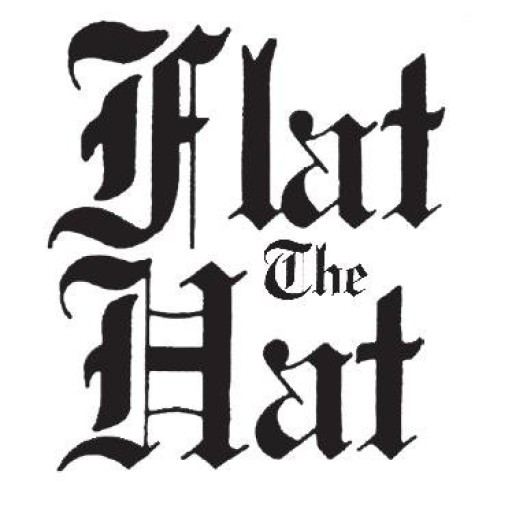Seth Nelson is a freshman planning on double majoring in International Relations and Mathematics. In his free time, he enjoys reading, playing chess and talking to friends. Email Seth at srnelson01@wm.edu
The views expressed in the article are the author’s own.
In the annals of history, there is nothing so important as orthography. Proper understanding of orthography, identified by the Oxford English Dictionary as “a system of spelling or notation,” is not just critical for education, but for the existence of the state. Take, for example, the sorry fate of Aleksander Stambolyiski, who was overthrown as head of the Bulgarian government for attempting to reform Bulgarian orthography after World War I. Or the Chinese Qing dynasty, which collapsed in 1912, not long after its publishing houses printed increasingly terrible book copies. Ink was watered down, miscopies and mistakes proliferated, and the Chinese character, that noble symbol of intellect, soon lost all legibility — little wonder the state collapsed. Through the objective lens of history, it is an indisputable rule: Orthography is the lifeblood of the state.
This essay concerns itself with but one particularly illustrious member of English orthography, the Oxford comma, which originated in no less illustrious an institution than its namesake, the University of Oxford. The brainchild of that profound genius, Horace Hunt, the Oxford comma is a useful and, in some cases, necessary tool for rational discourse. For those who do not know, the Oxford comma is the practice of placing a comma before ‘and’ at the end of a list. A titillating example of the Oxford comma is placed in red below for the benefit of the reader.
![]()
Without the Oxford comma, confusion abounds. The phrase, “This book is dedicated to my parents, Ayn Rand and God,” states that one’s parents are literally Ayn Rand and God, rather than the much more reasonable, “This book is dedicated to my parents, Ayn Rand COMMA and God.” Any educated member of society would agree, the Oxford comma is a grammatical necessity in every sense.
The observant reader may have noticed a strange, scribal circumambulation in the phrase, “This book is dedicated to my parents, Ayn Rand COMMA and God.” They may wonder why the author chose to write “COMMA” in big capital letters, rather than simply using the Oxford comma which he so clearly adores. Don’t get me wrong; I do adore the Oxford comma. Upon publication, however, every last Oxford comma I type will be removed. You see, it is the unfortunate policy of The Flat Hat to eradicate every Oxford comma their writers — innocently and rightly — dare introduce. To fend off these unscrupulous editors, I am forced to use an image and the absurd phrase, “COMMA,” to indicate the existence of an Oxford comma.
The sentence peaches, plumbs and pears, as I have typed it, uses a beautiful Oxford comma. Yet, this Oxford comma will never grace the reader’s eyes due to the editor’s malignant orthographical practices. Any reader sufficiently versed in writing would quickly agree that this is a perversion of the English language. Omitting Oxford commas leads to moral depravity, such as in one phrase from The Times, “encounters with Nelson Mandela, an 800-year-old demigod and a dildo collector,” which literally states that Nelson Mandel is an 800-year-old demigod who collects dildos. With an Oxford comma, this sentence becomes much more respectful for such an esteemed member of society.
Now, I am in no sense an unreasonable man, nor am I a fanatic. I respect that there are instances where the Oxford comma makes little sense, in the same sense that a period should not be placed after every word. The phrase, “I met Marilyn Monroe, a woman wearing a dress COMMA and the president of the United States,” is ambiguous with an Oxford comma. Does the phrase describe a list with three separate entries, a woman in a dress and Marilyn Monroe and the president, or does it refer to two different things, Marilyn Monroe, who is in a dress, and the president? The sentence is unclear.
Every grammatical object has its place. The Oxford comma has its own, very well-defined place, and if we do not use the Oxford comma properly and rationally, then we will not convey the full sense, complexity and meaning of the English language. Moreover, we risk offending our best members of society, like Nelson Mandela, who, by no fault of their own, were turned into a laughingstock through one missed comma. The Flat Hat, with its militancy against the Oxford comma, risks devaluing the best of our society, and, in so doing, risks the devolution of society itself. If we continue this policy of anti-Oxfordization, America, land of the free, will surely crumble. We all must be careful, lest we follow the way of the Qing Empire. Join me in fighting back against The Flat Hat. Bring back the Oxford comma!
What follows is a list of phrases with Oxford commas I have introduced purely out of spite for The Flat Hat’s editors, who will have to remove every single one: planes, trains and automobiles. Fish, dragons and seahorses. Marxism, capitalism and socialism. Chair, wheel and leg. Pokémon, videogames and mothers. Odysseus, Herakles and the Cyclops. Plato, Socrates and Aristotle. Backpack, map and Dora the Explorer. Lord of the Rings, Harry Potter and Star Wars. Friends, enemies and frenemies. The life, times and joys of Seth Nelson. Oxfords, commas and orthography.
The author would like to thank Adam Jutt and Andrew Hoffman for their contributions to this essay.

